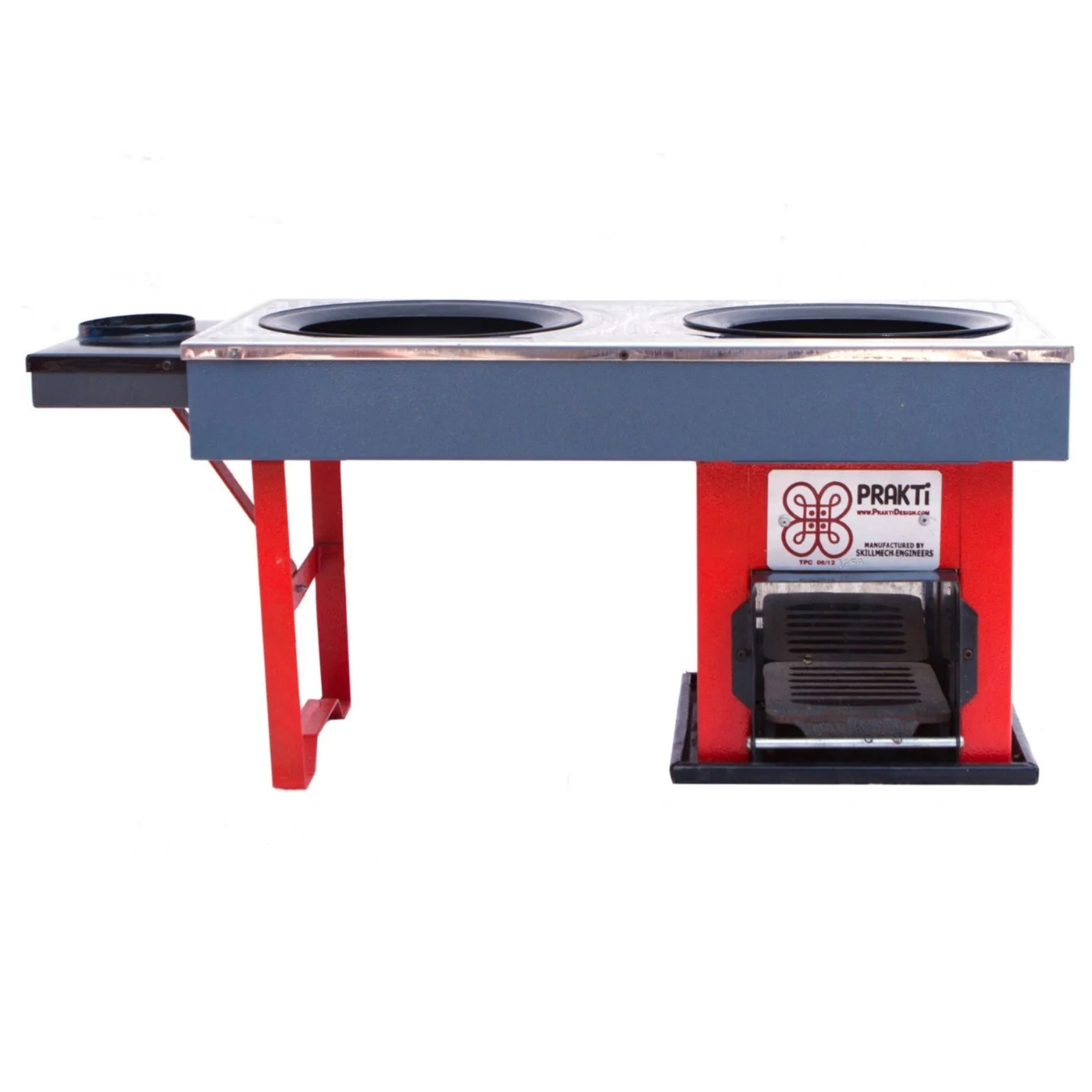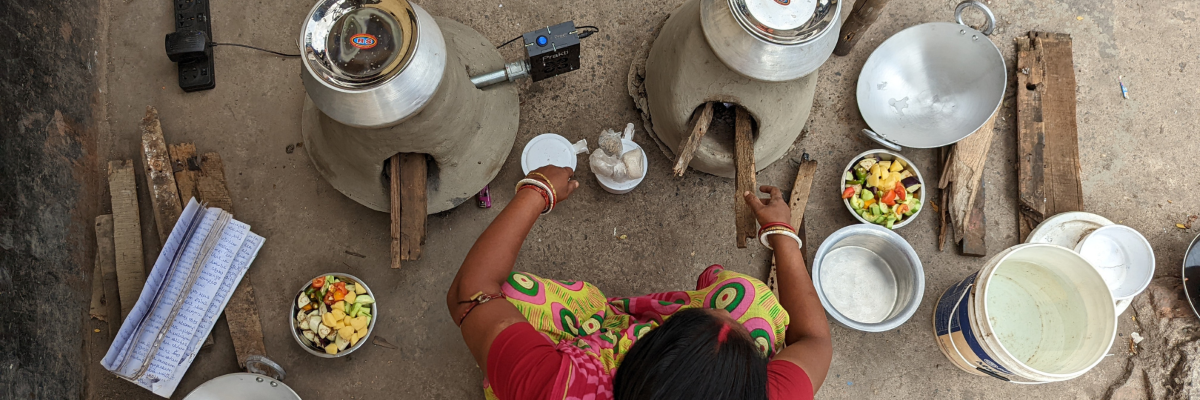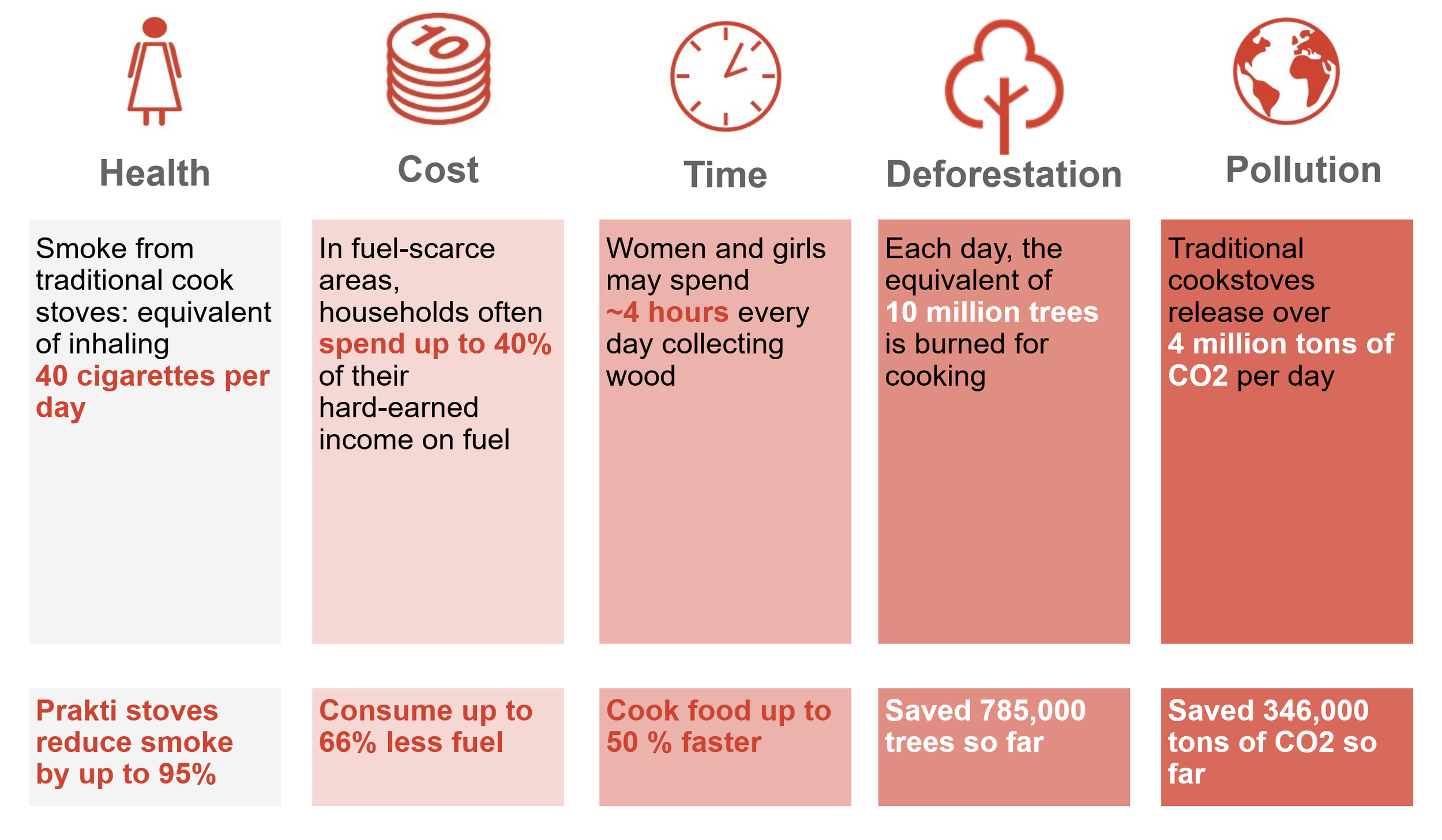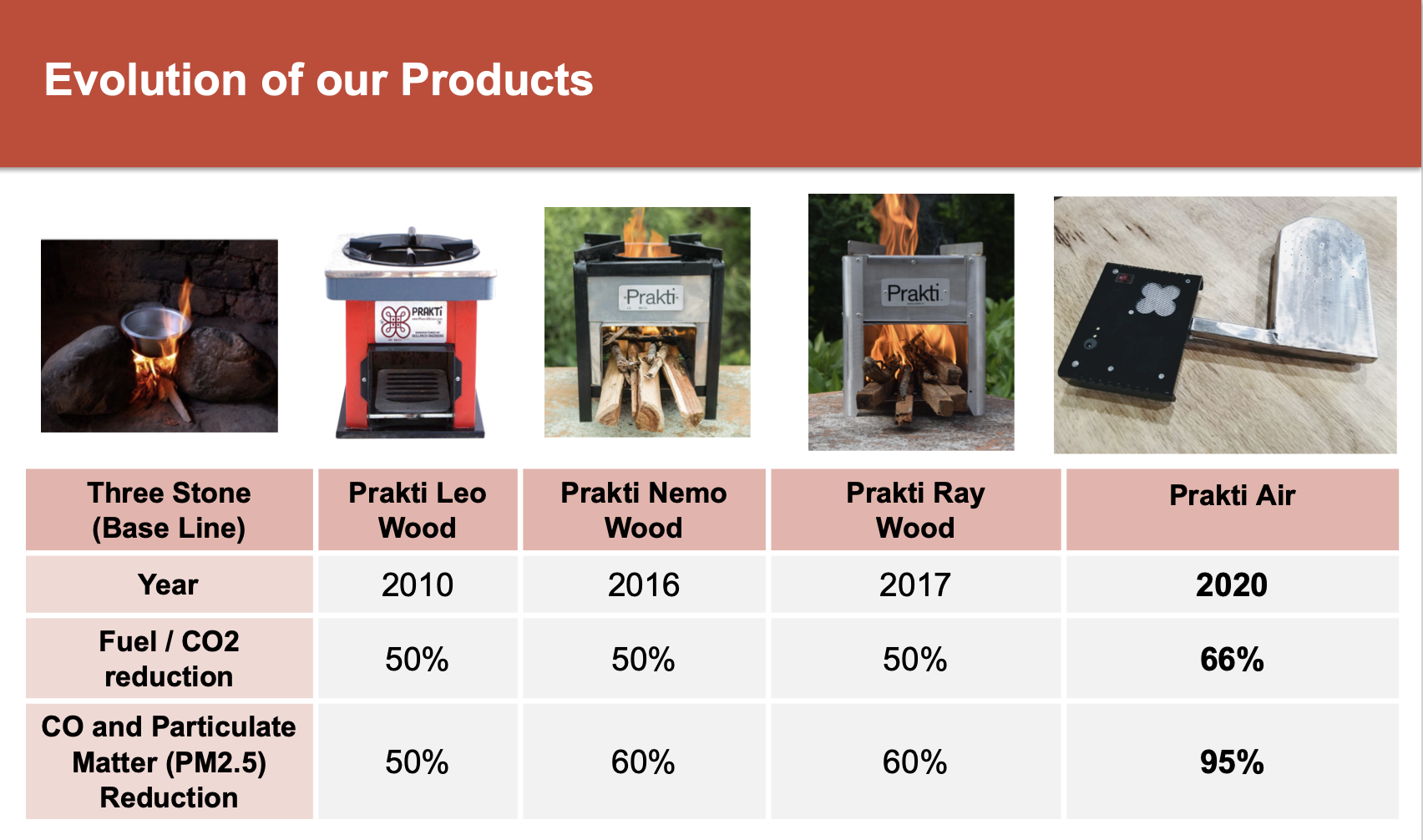
Our Solution
Engineers interested in sustainable, impactful solutions have long recognized fuel-efficient cookstoves as a potential tool for mitigating the respiratory disease plaguing women in income levels 1 and 2, who cook predominantly over smokey wood-burning fires. Clean cooking technology has the potential to address a wide variety of social disempowerment and environmental harms associated with burning biomass.
But for decades, cooks have mostly rejected the stoves designed to help them as the development community didn’t make them with the user experience as paramount.
Prakti aims to change that by producing easy-to-use, robust, affordable, efficient, aspirational products and exerting design influence on the rest of the sector.
Products
We offer a range of products to meet specific local requirements. We also understand that there is more to a stove than just cooking. We offer meat smoking boxes, water heaters, and space heaters, which are extremely useful in Nepal and other cold climate regions.
-

Prakti Air
Prakti’s latest stove with best-in-class performance has our patented forced draft technology. Users can retrofit their existing traditional stove bodies to become forced-draft stoves. 66% less fuel required and 95% less PM and CO emitted. Currently in pilot phase in slums in Kolkata, and Baru Sahib, India. Learn more here.
-

Prakti Charcoal Stove
The clean cooking sector has neglected charcoal stoves, and Prakti is the first to design a modern charcoal stove. We have deployed them in Haiti and DR Congo. This stove also attracts BBQ enthusiasts around the world. If you would also like to live your best BBQ dreams, add your name to the waitlist for our currently sold-out product.
-

Prakti Wood Single Burner
High-performance natural draft stove, designed for usability (door size), cost (minimal tooling, local production), and maximum durability (100% stainless steel). Stove deployed in India.
-

Prakti Wood Double Burner
During our time in Tamil Nadu, we observed that a meal consisted of two separate dishes, cooked one after the other. We designed a stove that draws inspiration from the user's cooking experience, resulting in a design that can simultaneously cook two dishes.
-

Prakti Institutional (40L, 80L, 200L)
From Sudan to Haiti, the Institutional stove is the most popular with the World Food Program. Prakti has been their largest stove supplier since 2012. The institutional stove comes in three sizes; the 40 L can cook for 100 people, 80 L for 200, and 200 L for 500.
History of continuous improvement
While our 2010 product was twice as performant as three-stone fires (a common traditional cooking technique), we further increased performance and halved the price by 2017. In 2022 with the newest Prakti Air design, we are continuing to improve the performance and reduce the cost.
Experience in 14 countries
Prakti's expertise has been recognized by development agencies worldwide. We have had first-hand experience in stove design, testing & development, stove marketing & distribution in 14 countries through consulting projects with several local agencies.
Major implementation in:
Haiti : 500 schools, 2000 families
Sudan, North and East Darfur: 210 schools, ~1000 student per school
Congo DRC: 3000 families
India: 17,000 families, 50 schools and restaurants
Nepal: 700 families
Bangladesh: 100 families
We make Prakti cookstoves affordable and valued by those who need them.
Prakti, is a social enterprise and a program of a non-profit organization. Nevertheless, we do not just follow a traditional donation model when funds donated by our supporters sponsor a free product for the poor. This model has a good intention but has repeatedly proven highly inefficient.
First, there will never be enough donations to cover the needs of the billions of people who need a solution.
Second, when given things for free, there is no pressure/need to make sure that the product works well or is given to the people who need it the most.
We offer a much more efficient model: where your donation is used to invest into making stove available to the billions at a price they can afford.
Our products, if sold to industrialized markets, would fetch $150. But we want to make it available for $25 to people who need it.
We can only do that by investing in cost production, in a lean and efficient distribution, installation, and training of users. And this is where we need your donation.
Our goal is to have stoves installed in 10,000 families/households every month! In two years, this will be a total of 250,000 families for $25 each. For this to be possible, we need to raise $250,000. This results in every $1 you donate, you will be able to impact one family. This strategy is 25x better than donating one stove free.
Why do Prakti cookstoves use wood, but not solar, gas or electricity?
Creating Prakti, we thought about people living in income levels 1 and 2 in the most remote areas of developing countries.
In these conditions, people have no other option but to use wood, which is the cheapest and most reliable fuel source.
Prakti Air cooking stove is a solution for clean and almost smokeless cooking that is ready to use now, compatible with people's lifestyles, and does not require extra resources people don't have.
Cooking on wood-burning stoves is a well-loved cultural tradition. All the pots, pans, and recipes they have and use are made for cooking on a wood-burning stove. By asking people to switch, you are in effect asking them to give up their family's traditional recipes and culture.
There are other reasons we use wood with Prakti Air:
✔ It reduces wood consumption by 60% compared with a traditional cook stove;
✔ Wood is a more renewable resource than LPG;
✔ Wood is local and supports the local economy. LPG is imported and depletes both users, the community, as well as governments.
The Prakti Air does need to be plugged in in order to work. In order to make it as accessible as possible, we have made designed it to work with solar systems, external batteries or directly plugging into the wall. It uses half of the electricity that most phone chargers use and costs less than 4 dollars in electricity for an entire year worth of use.




